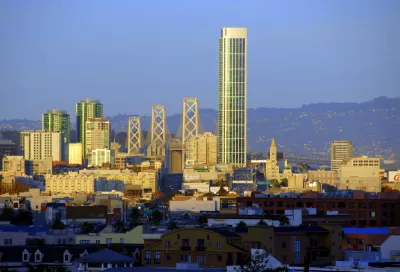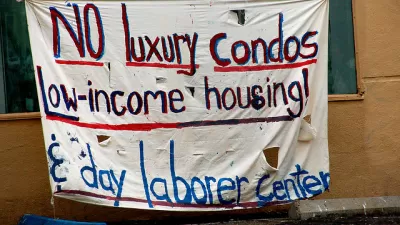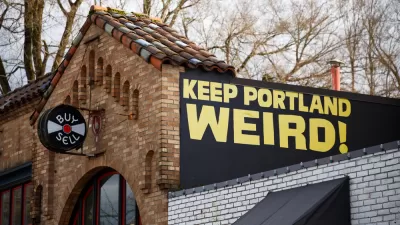San Francisco has long been the envy of other cities. But in recent years, as real estate prices have skyrocketed and the city's soul seems on the wane, many cities have begun looking at San Francisco as an example of what not to do.

"Nowhere… has there been a more concerted effort to create a San Francisco-like tech scene with fewer downsides than in Seattle, the country’s second-biggest tech hub by some measures," according to an article by Nick Wingfield.
Wingfield cites examples of similar concerns in cities like Boulder and Austin, but focuses on how Seattle has reacted to the evolution of San Francisco in recent years as a result of the influx of residents and businesses connected to a booming tech industry.
Seattle, too, has been attracting varieties of tech businesses—none with more capacity to change the fabric of the city than Amazon. According to WIngfield, "[w]hile the city’s mayor, Ed Murray, praises Amazon, he has also said he wants to keep the working-class roots of Seattle, a city with a major port, fishing fleet and even a steel mill. After taking office last year, he made the minimum-wage increase a priority and reassured representatives of the city’s manufacturing and maritime industries that Seattle needed them." Mayor Murray is pinning his vision for the city on the idea that a bustling tech sector need not cause the demise of the manufacturing industry.
One key difference between Seattle and San Francisco, as examined in the article, is each of the city's construction of housing. "Last year, Seattle had a net addition of more than 7,500 homes, a record for the city, compared with just over 3,500 in San Francisco, according to planning departments in both cities." To be fair, according to Wingfield, "Seattle partly benefits from having a larger area and about 185,000 fewer residents than San Francisco."
FULL STORY: Seattle, in Midst of Tech Boom, Tries to Keep Its Soul

Planetizen Federal Action Tracker
A weekly monitor of how Trump’s orders and actions are impacting planners and planning in America.

Congressman Proposes Bill to Rename DC Metro “Trump Train”
The Make Autorail Great Again Act would withhold federal funding to the system until the Washington Metropolitan Area Transit Authority (WMATA), rebrands as the Washington Metropolitan Authority for Greater Access (WMAGA).

The Simple Legislative Tool Transforming Vacant Downtowns
In California, Michigan and Georgia, an easy win is bringing dollars — and delight — back to city centers.

The States Losing Rural Delivery Rooms at an Alarming Pace
In some states, as few as 9% of rural hospitals still deliver babies. As a result, rising pre-term births, no adequate pre-term care and "harrowing" close calls are a growing reality.

The Small South Asian Republic Going all in on EVs
Thanks to one simple policy change less than five years ago, 65% of new cars in this Himalayan country are now electric.

DC Backpedals on Bike Lane Protection, Swaps Barriers for Paint
Citing aesthetic concerns, the city is removing the concrete barriers and flexposts that once separated Arizona Avenue cyclists from motor vehicles.
Urban Design for Planners 1: Software Tools
This six-course series explores essential urban design concepts using open source software and equips planners with the tools they need to participate fully in the urban design process.
Planning for Universal Design
Learn the tools for implementing Universal Design in planning regulations.
Smith Gee Studio
City of Charlotte
City of Camden Redevelopment Agency
City of Astoria
Transportation Research & Education Center (TREC) at Portland State University
US High Speed Rail Association
City of Camden Redevelopment Agency
Municipality of Princeton (NJ)





























